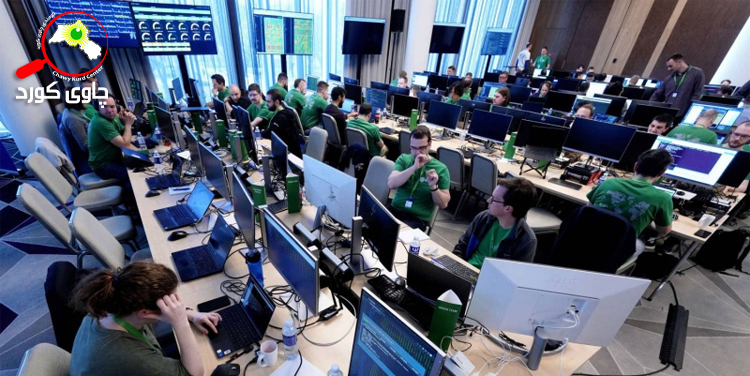Those who discuss the concept of digital democracy believe that it is a means through which democracy is combined with technological advances in order to democracy as a global phenomenon is not isolated from global developments. Reality has imposed major economic, social and political challenges on the Western world, many of which stems from domestic challenges and is clearly reflected in the global system founded in the early 1990s on the basis of the liberal school. Today, Western countries are facing the growth and expansion of the activities of undemocratic countries in the world, which has become the biggest threat to the democratic process. But what is happening is that these democracies have become less confident and face great challenges in maintaining their position as a global model of progress, civilization and a measure of the level of development in society. The shift from popular to elite parties has led many to ask whether these problems stem from democracy or an external condition imposed on democracy in general.
Recently; there has been a great deal of literature describing the dilemmas of Western democracy and ways of responding to the challenges it faces, and in large part one of the main reasons is the rapid technological changes that have created new spaces. While technology has significantly influenced democratic values and changed traditional concepts of national identity and social values, however, the Internet and digital communication platforms have become increasingly important as new channels for political and social dialogue and interaction or controlled by political power.
First: Digital Democracy as a Tool to Face Challenges?”
Some experts are believed that technology can contribute to addressing the challenges facing democracy, if used to change traditional behaviors and tools.
Second: How is digital democracy used?”
Many models of digital democracy are currently being implemented, with some governments around the world beginning to deliver their services through electronic channels (e-government), away from the bureaucratic complications that citizens faced in the past. In short, digital democracy offers new directions of action for governments and direct benefits for democracy, particularly in terms of changing the nature of popular participation in political events, whose reluctance raises fears that democracy will eventually undermine itself be filled, but it has created new risks and challenges.
Third: Dangers and Challenges of Digital Democracy”
In the light of the chaotic global order, where uncertainty prevails and growing competition between democratic and non-democratic countries, especially Russia and China, this competition has shifted to digital and technological channels, especially after Russia was accused of influencing the conduct of the elections, relying on the dissemination of misleading information.
Fourth: Digital Democracy as a Tool of Control”
So contrary to the expectation of using digital democracy as a tool to encourage citizens of non-democratic countries to demand their rights, we find that governments in those countries have used this type of democracy to consolidate their narratives and delegitimize their opponents. In other words, digital democracy has been used by non-democratic countries as a tool of repression and control. China shows a clear example of how technology and artificial intelligence are being used to control society, and aroused admiration even among established democracies when Chinese government policies contributed to controlling the spread of the pandemic and how the surveillance system.
-
-
The Western democratic experience is facing serious challenges that may affect its future and expose existing models to radical change.
-
These challenges stem primarily from the impact of changing times on liberal political systems, as the inability to keep pace with developments and accelerating technology has led to a widening in the gap between citizens who rely on digital in their lives, and channels or institutions.
-
Some believe that digital democracy as a solution to fill this gap in practice and usage, but their experiences soon face many cautions due to inability to control technological space as a result of overlap of public and private space at state and individual level.
-
Despite this, it had bigger influence on state values and national identity, which made it easier for its opponents, and enabled non-liberal countries to attack and question Western values. Especially since fighting those ideas requires countries to practice behaviors that restrict freedoms, which is considered one of the biggest threats to democracy itself.
-





























































